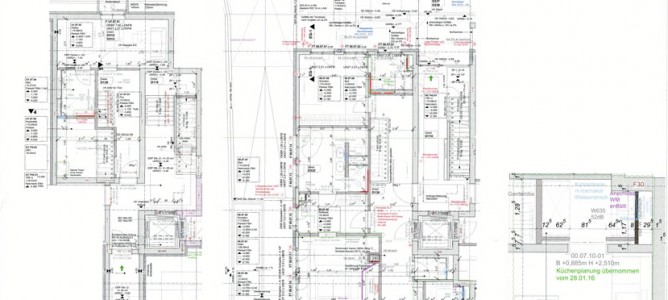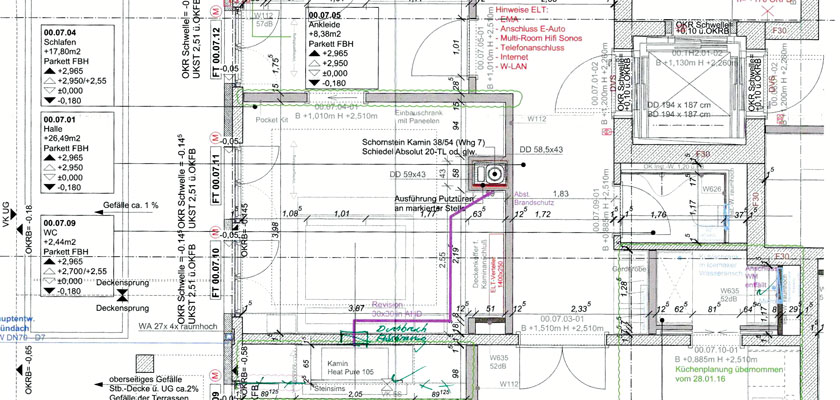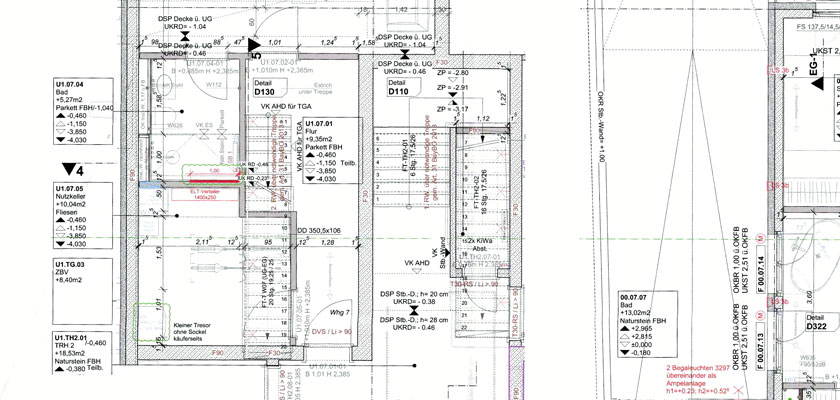A condo purchased from a real estate developer usually exists only on paper up to that point. That has many clear advantages, such as the fact that the buyer is granted the opportunity, to a certain extent, to have a say in the design of the new construction. However, without advice tailored to one’s individual needs, building plans that look wonderful on paper can lead to some bitterly disappointing results when implemented in real life.
To ensure that the purchase of a condo is a truly successful investment, you should keep a few things in mind ahead of time.
Seek out the advice of a professional early on
To be completely honest: I often wish that my clients had contacted me much earlier. Ideally, they would have gotten in touch even before closing on the condo! Reality, however, is another matter. The developer presents a pristine view of the condo and the buyer trusts plans that look great on paper. Unfortunately, many of these plans are often very impractical.
Over and over, I have experienced cases where young people accept plans developed by real estate corporations and miss out on the chance to identify what their individual housing needs really are. Therefore, my tip is: Do not shy away from seeking out the advice of an independent interior designer during the decision-making process. An interior designer can alert you to small, yet important details and work alongside you to determine what is truly important for your daily living space. He can provide you with professional advice beforehand and evaluate what aspects can actually be borrowed from the original design. Alternatively, he can also show you what areas can be left out in good conscience or implemented in a more cost-effective, individual or elegant way.
Think ahead
When advising clients, I always have them think into the future. How do you see yourself in 5, 10 or 15 years? How do you envision your daily routine? Are there enough rooms for future children? Blueprints often appear attractive because they lay out the condo perfectly. However, as the saying goes: the devil is in the details. For example, what about the stroller? Is there a place to park it that is safe and dry? Or will you need to bring it into the entryway of the apartment every day, muddy wheels and all, because it cannot be left in the hallway? Is there enough office space at home in the case of long-term freelance work? Sadly, these sorts of questions are often overlooked in the case of impractical plans. Additionally, there is often too little space planned for storage room. Where will the vacuum be put away, or the suitcases? In general, too little room is reserved for the coat closet for guests.
As an interior designer, I can point out important details during this initial phase, without incurring additional costs, simply by logically adjusting the plans to your very personal and individual demands.
Lighting and cardinal direction
Light and cardinal direction play a major role in the layout of the space. How bright is the condo on cloudy days? Are the bedrooms north-facing and the living spaces south-facing? Here too, your personal habits must be considered. What is your daily routine, where do you spend the most amount of time at home and where is light most important to you? You or your interior designer should align the building plan with your personal needs!
Bathrooms, working from home, etc.
Does the planned bathroom meet actual needs? Or would you rather have two smaller bathrooms, in order to avoid stressful situations on hectic mornings? As an interior designer, I am happy to offer advice and quickly see if a change in the plans is possible.
Carefully study the building specifications!
Particularly because a condo purchased from a real estate developer often exists only on paper before purchase, it is especially important to go through the building specifications with a fine-tooth comb, for here you find the description of precisely what the development company is required to provide. What about energy systems or noise insulation? What are the sanitary facilities? The development company is generally only required to provide that which is laid down in writing.
In addition, you should pay attention to the exact wording! “High-quality windows” or “environmentally-friendly materials” do not actually mean anything. It is much better to look for exact product descriptions in order to know what you are getting.
Signing the contract
Changes to the contract are only possible before the contract is signed before a notary. To avoid surprises in price, you should determine the costs of special requests ahead of time (such as special tile work) and have these be written into the contract.
I am happy to read through your building specifications and to help you evaluate your purchase from the perspective of a professional.
You can depend on cost certainty at Atelier Minarik. It would be our pleasure to help you avoid expensive changes through careful planning ahead of time. Simply contact me as soon as something catches your eye!



